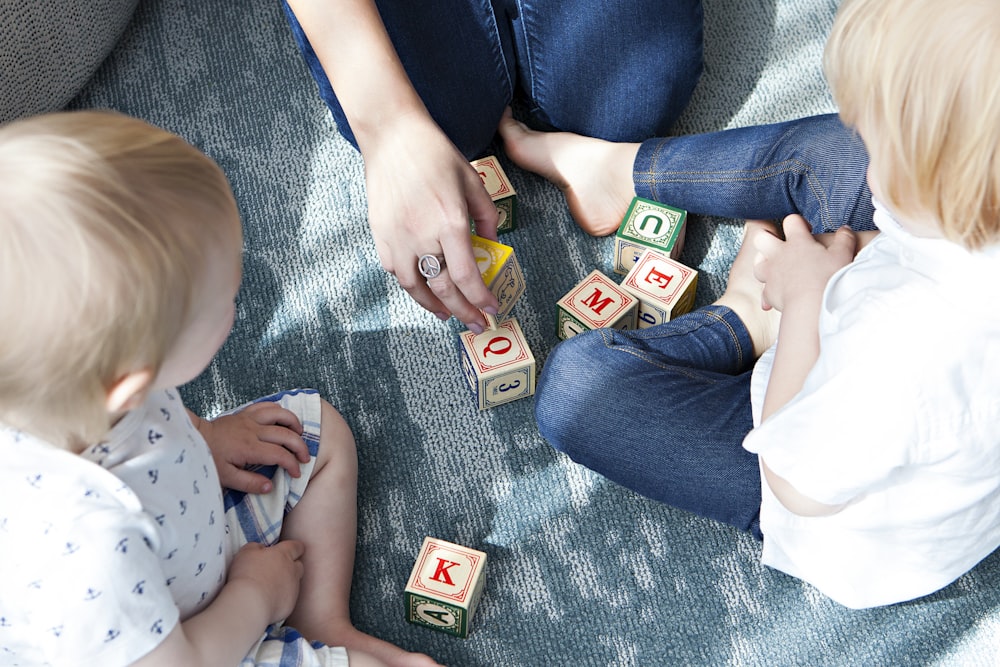It’s 2016, and the boundaries of co-living continue to expand and evolve. From living with your sibling again to moving in with a senior, today’s renters are all about making it work. So what happens when you find the perfect roommate who also happens to have a child? It’s not exactly like living with an untrained pet (though you might want to prepare yourself for the occasional accident), but living with a minor can be intimidating — even if you have experience with kids. Then again, it can also be pretty fun having a playmate around. With clear communication and some ground rules, you can totally make it work for everyone! Here are a few tips from experts and roommates alike on how best to take on co-living with kids.
The Reality of Co-Living With Kids

First and foremost, you should talk with the parent(s) about their expectations for the living arrangement and your inevitable interactions with the kid(s). You might be used to staying up late and walking around in a towel post-shower, but these habits may not fly anymore with the little ones around. Early childhood and parenting expert Barbara Harvey offers advice on a few things you should consider before signing a lease with someone who has kids.
1. Remember: This is a Child’s Home
Living with a child is like living with someone whose lifestyle is completely different than yours: You’ll sleep, eat, and play on opposite schedules. Not to mention, you have to consider the reality of growing pains. Think you know what tantrums are? You have no idea until you’ve lived with a kid.
“Children are sometimes loud, cranky, whiny, overexcited, and rude. Are you willing to deal with those times?” asks Harvey.
If you love to come home and unwind, you should know it’s not always going to be easy, adds Alex Davis, a live-in nanny from Washington state.
“Children are unpredictable. You never know if you’re walking into a total disaster or a happy home. If you think you are going to come home and relax, you are clearly mistaken.”
2. Discuss Your Boundaries
Living with a parent does not in any way mean you’re signing up to be a secondary caretaker, but this should be made crystal clear. Are you willing to help with some babysitting, or do you want zero responsibility? The decision is yours to make, but both parties should be in agreement, advises Harvey.
“Clarify the relationship that will exist between you and the kids and whether you’re expected to assist in childcare in any way,” she says. “Set clear rules about whether children are allowed in your space when you’re home and when you’re not.”
Saying nothing at all in the beginning could mean having to hold your tongue later to maintain the peace. Although it can be an awkward topic, the importance of personal space is something 26-year-old Ashley Wade wishes she had brought up before moving in with her sister and nephew over a year ago.
“I essentially moved into their established home. So my space feels somewhat limited. I don’t have a section of kitchen cabinets that’s mine or extra storage space. And pretty much the only “me” time I get away from the noise and the occasional bickering between mother and son is when I’m in my small room,” she confesses.
“Napping is a chore and getting woken up early on my off days just comes with the territory.”
If you’re all about hanging with the kids, then great! But make sure you also understand where your boundaries lie.
“Talk about if you can bring friends over, if you can have someone spend the night, and if you’re allowed to take the kids out and about around town,” suggests Davis. “There are lots of things to find out, so realize you might not think of everything at the beginning. Once you get to know the family, it will all come out.”
3. Be Yourself…Respectfully
Living with a child also means realizing that you are setting an example — whether you like it or not.
“By moving into a house with children, you automatically become an adult role model. Even if you’re rarely around, children are keen observers,” says Harvey.
That means everything from your recreational habits to your overnight guests will be on full display. So while you may not be a babysitter, being a positive influence in passing is important.
“I have to be mindful of who I bring around. Little eyes see everything, and it’s very different than just living with adults, ” says Wade.
“Out of respect, I always let my sister know who may be coming by and if I’ll be home late. I do feel like it’s both our home, but I feel more like the guest. It’s not bad; it’s just not as much freedom as it would be if you were sharing a home with your peers.”
The Perks of Co-Living With Kids
So we’ve covered the dos and don’ts, but it’s not all so serious. Living with kids can be a blast, says Davis, who loves working and living with children because of their ability to brighten her day instantly.
“A pro to living with children is that they can take your mind off anything, even if you are having a terrible day. Also, kids are active. There isn’t much time for boredom or wasting the day away.”
An added bonus: You’ll never be those neighbors, as everyone will have quiet hours — and that’s a plus for you too.
“You don’t have to worry about them coming home drunk at 4 a.m.,” points out Davis.
Touché.
D’you know what else Roomi does outside of helping its readers manage co-living with kids? With our ever-increasing lists of rooms and roommates across the world, we help you find your perfect match! Download the app here and hop on the easiest ride home, ever!



Leave a Comment